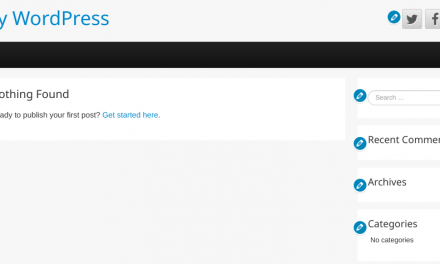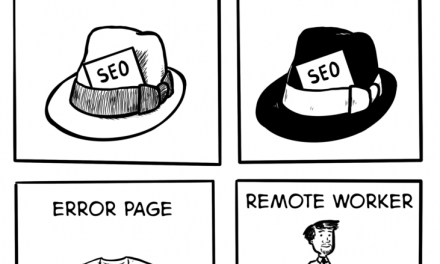On a rainy, cloudy day in New York City, WordPress Co-Founder Matt Mullenweg presented his annual State of the Word keynote speech. In front of a small but engaged in-person audience, and a vast streaming audience, Mullenweg went over the WordPress wins for 2022 and what we can look forward to in 2023.
Some themes were familiar such as the power of the community, and the importance of keeping open source open. But others like collaborative editing within the dashboard and new plugin taxonomies spoke to an exciting and vibrant future of the project that couldn’t have been imagined when it was created 20 years ago.
Let’s dive into it all.
Missed the keynote? Watch the entire thing here:
WordPress for All
This year’s keynote kicked off with a beautiful sentiment from WordPress Executive Director, Josepha Hayden Chomphosy, who displayed the four freedoms of open source, reminding us all why we’re here. These act as a sort of sort of Bill of Rights for all open source projects.
WordPress has and will always be open source. That means that anyone with a device and Wifi connection can create beautiful websites.
“We secure opportunities and freedoms long into the future for people who may not even know those freedoms should matter to them yet,” Chomphosy said. “Open source is an idea that can change our generation.”
On that profound note, Mullenweg was introduced and began a look back at what was accomplished in 2022.
2022 By the Numbers
2022 was a huge year for WordPress. After the tough previous two years, the community was able to come together in person and get back to what makes WordPress great, the people.
WordPress Turns 20
It is hard to believe but WordPress is turning 20 next year! Mullenweg announced there will be celebrations throughout the year. Watch this space for ways to welcome WordPress into adulthood! This is a huge accomplishment software projects.
In-Person Events are Back
After COVID halted all in-person meetups in 2020 and most of 2021, 2022 brought people back together in person in a big way. Both the number of meetups and WordCamps grew significantly.
- 500 meetups doubled their size in 2022
- 22 WordCamps happened in 2022 (Up from 1 in 2021)
- 34 WordCamps are currently being planned for 2023
Contributions Grew
Just as in-person events suffered in 2020 and 2021, so did contributions. Put simply, WordPress cannot be without the contributions from the community, and the last two years were a big of a hit. This year, however, even more people came together to make WordPress better.
- Overall there were 1,399 release contributors.
- 652 of those were first-timers.
- 204 contributed to all the releases in 2022.
- 424 contributed in 2021 and 2022.
- 322 took a break in 2021 but returned in 2022.
As Mullenweg said in the speech, “From the bottom of my heart, to the top of my lungs, thank you to the WordPress community.”
Democratizing Design
There were three big releases this year, and all aimed to wrap up Phase 2 of Gutenberg. By introducing theme blocks, styles, and patterns, WordPress took one step closer to Site Editing. With the release of 6.1, users can now actually design their entire website using blocks.
One of the coolest things that shipped with 6.1 is the Twenty Twenty-Three theme which featured style variations designed by community members. These variations allow you to reskin your site with just the click of a button.
These features will have a huge impact on how people design in WordPress. Mullenweg mentioned this theme might be “one of the last for WordPress.”
Onward and Upward
Speaking of exciting, let’s dive into what we can expect from 2023 and beyond. It’s clear no one is hitting the brakes in 2023, and things are only going to get bigger and better.
Editing Together with Gutenberg
As stated above, Phase 2 of Gutenberg will most likely end in March of 2023 with the release of 6.2, so what is next?
In 2023, Phase 3 will begin. With this phase comes Collaborative Editing, giving users Google Docs-like real-time editing tools. This means you can share a draft of a page or post and someone can add edits and comments.
Another big update in Phase 3 will be to Post Revisions. These allow you to see every edit that has been made to a post, which can be handy but potentially slow down your site. Mullenweg announced an update to the interface in 2023.
Categorizing the Plugin Repository
A big announcement for any plugin authors out there, the plugin repository will now include a few new default taxonomies. These are meant to further categorize and explain the use of each plugin. They are as follows:
- Single-player plugin: Created by an individual, might have paid aspects, not accepting contributions.
- Community plugin: Completely free, built by the community, for the community. There are no upsells. Contributions are not only encouraged, they are regularly requested.
- Canonical plugin: A community plugin that has been “blessed” by wordpress.org. The plugin will be featured there, and WordPress core team members will perform frequent security checks. Think Gutenberg.
- Commercial plugin: A plugin owned by a company, may or may not accept contributions.
These are set to launch this month.
Introducing Playground
One of the biggest announcements of the day was for Playground. Playground, which is being marketed as a “WordPress experience that runs totally in your browser,” allows you to test out any part of your site without using a host, database, or web server of any kind.
You can test out plugins, design choices, updates, and anything else you can think of in real time. If you are already logged into the WP Admin, you can start using the tool today without any sign up or set up.
This can be a great option for someone new to WordPress who wants to get in and play around, or a seasoned user who wants to test out a new plugin without breaking anything.
Though the project is live, it is still very much being tested. If you want to jump in and give feedback, you can do so here.
Is AI the Future?
Mullenweg was very excited about the uses AI could have for the future. He shared a prompt his team had given ChatGPT, a language creator.
The answer was pretty spot on. So what does this mean for WordPress? While Matt didn’t make any direct connections from AI to WordPress, the parallels were pretty clear.
DALL-E is an open source project, so could AI be the next big thing in open source? Are bloggers going to start using AI to write articles or create images? Probably not, but the opportunity is there and it is growing. Mullenweg shared his favorite Picasso quote, “Computers are useless. They can only give you answers.”
Mulenweg countered with, “Computers still give you answers. The creativity is in the inputs.” So no, AI isn’t going to take over all website and content creation. It can serve a purpose in helping inspire or make us think differently, but ultimately, creativity is very human.
Questions Were Answered
As with every State of the Word, there was a robust Q and A section at the end that allowed for people to bring up things that weren’t mentioned in the speech.
The Future of Themes
Understandably, Mullenweg’s mention of “The last theme,” put some people on edge. Bud Kraus asked for clarification on what the future of themes looks like to Mullenweg. Could there be a future with one universal theme and nothing more?
The short answer, no.
“I see themes being split into two categories: standardized block themes and community themes doing niche or interesting stuff,” Mullenweg said.
There is room for both of these communities to exist within WordPress. Some users will opt for a block theme where they can get something spun up within a day, but others will need an expert to create something from scratch.
PHP 8
It wouldn’t be a WordPress event without talking about PHP 8. Ryan Marks asked, “Since core can’t speak for themes and plugins, can we really say we support PHP 8?”
Mullenweg at first let an audience member take a stab at this answer, “8.1 and 8.2 are not supported officially in WordPress core or canonical plugins…we need to do a better job with complete support [and] make this a priority in 2023.”
He then responded with his own thoughts, “It’s scary when you hear ‘end of life’ but in practice, every major web host continues to backport security and support. Including Automattic.”
The fact of the matter is, uneasiness around losing support for something is natural, and has happened in the past. We have to do our best to make sure clients and other users feel supported when this happens.
WordPress Certification
A conversation that has been floating around WordPress for years is whether or not there should be some kind of certification program for WordPress. Though he has been opposed in the past due to the work it would take to create and administer these tests, it seems Mullenweg’s tune might be changing.
“As there’s more demand for WordPress experts than ever, having some sort of standardized education that they go to. It’s an ongoing training,” he said. “I guess mostly I want to figure out how to do it in a WordPressy way. We want to make this content, training, as radically open as possible.”
Leave it Better Than You Found It
At the end of the day, everyone here wants to make WordPress better. Whether it be by making plugins and themes, building sites for clients, or contributing to Core, we all want this thing to be around a long time.
Mullenweg mentioned part of that is realizing that WordPress is bigger than us, saying, “I hope that 100 years from now, someone will be giving the State of the Word. WordPress belongs to all of us but really we’re just taking care of it for the next generation.”
That’s what I’m going to take with me into the New Year. Let’s all take some much needed rest, and then hit the ground running in 2023 to help WordPress take over the rest of the web.











